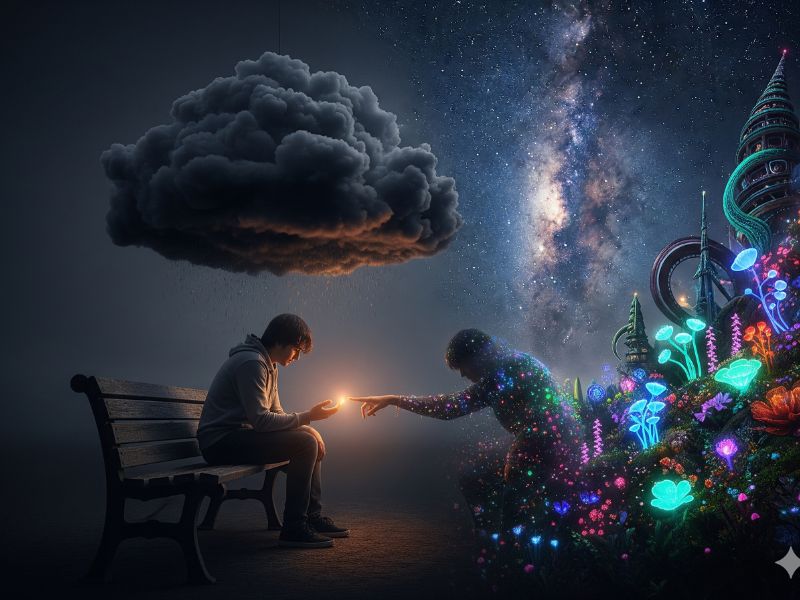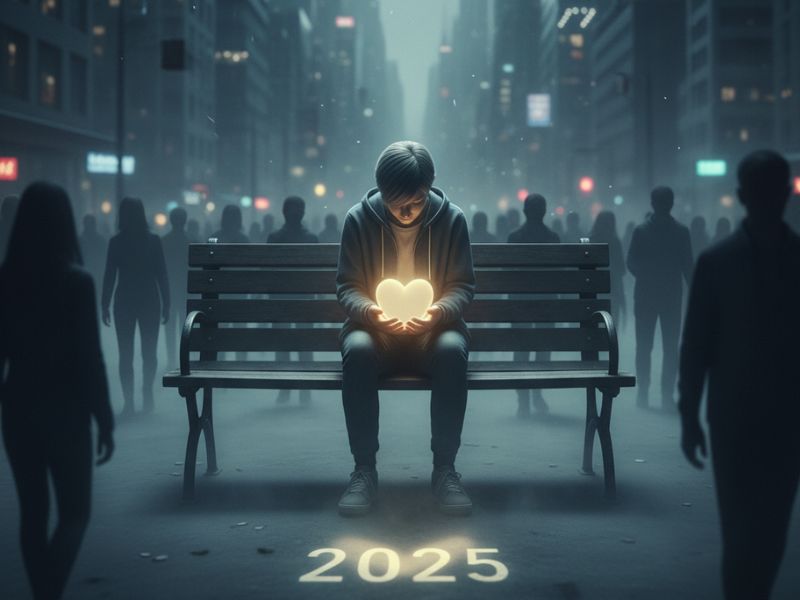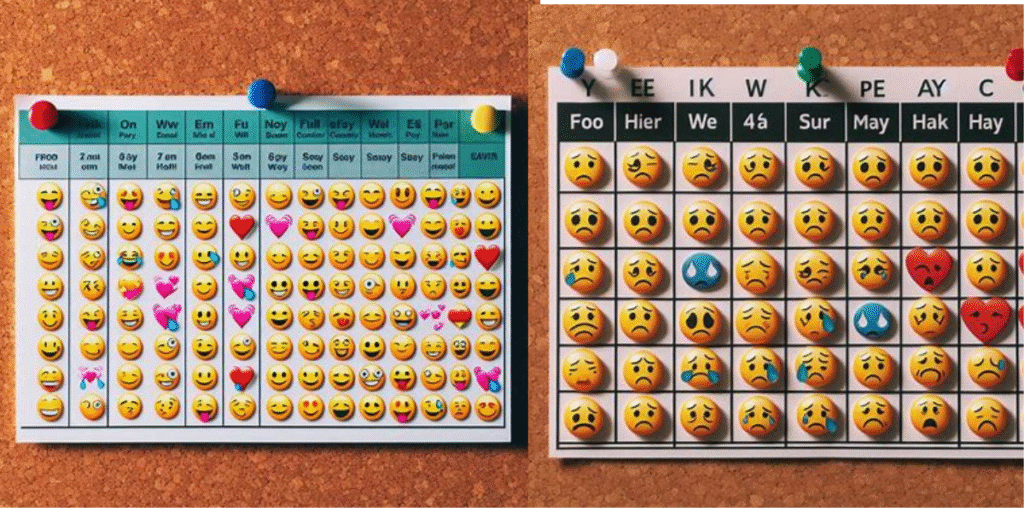It’s 2025, and conversations around mental health are no longer whispered in the dark corners of life, they’re finally breaking into the light. And yet, even with mental health in the spotlight 2025, so many of us still struggle quietly, believing our battles are ours alone.
I remember the first time I admitted to someone that I wasn’t “fine.” My voice shook, my hands fidgeted, and I braced myself for judgment. Instead, I got a nod, a soft smile, and the words, “Me too.” That moment taught me something powerful: vulnerability isn’t weakness—it’s connection. And connection is what keeps us alive.
This year, over a billion people are wrestling with their mental health. That number can feel overwhelming, but it also means this: you are far from alone. Together, let’s unpack what it really means to live in a time where mental health is at the forefront, and how we can navigate it, individually and collectively, with courage, compassion, and hope.
Why Mental Health Matters More Than Ever in 2025

When we talk about mental health in the spotlight 2025, we’re talking about a global shift. Workplaces are finally acknowledging burnout. Schools are introducing mindfulness programs. Even governments are beginning to treat mental well-being as a priority, not a luxury.
But here’s the paradox: while awareness is growing, so is the struggle. Rates of anxiety, depression, and loneliness continue to rise. The pandemic years left deep scars, technology fuels both connection and isolation, and economic uncertainty adds new layers of stress.
The spotlight is here, but so are the shadows. And both deserve to be seen.
1. The Weight of Modern Pressures

Think of your mind like a phone battery. Some days it’s fully charged, glowing green, ready for anything. Other days, it’s flashing red—drained by work deadlines, endless notifications, or the quiet ache of loneliness.
In 2025, we’re carrying heavier loads than ever:
- Constant Connectivity: The pressure to always be “on” means rest feels like rebellion.
- Economic Stress: Inflation, job insecurity, and the rising cost of living weigh heavily on mental well-being.
- Comparison Culture: Social media highlights reels make us feel like we’re always falling short.
- Global Uncertainty: From climate change to political instability, the world often feels like it’s on fire—and our minds absorb the heat.
No wonder mental health in the spotlight 2025 is more than a trend; it’s a survival need.
2. The Silent Epidemic: Loneliness

Here’s a truth many of us hesitate to admit: you can be surrounded by people and still feel utterly alone.
Loneliness has been called the “silent epidemic” of our time. Research shows it can be as harmful to physical health as smoking 15 cigarettes a day. But beyond statistics, it’s the ache of going to bed with no one to call, or scrolling endlessly just to feel a flicker of connection.
The spotlight on mental health in 2025 is helping us name this pain, but naming isn’t enough. We need to rebuild communities, online and offline, where showing up messy and real is not only accepted—it’s celebrated.
3. Stories That Heal: Why Sharing Matters

One of the most powerful things we can do is tell our stories.
When I shared my struggles with anxiety publicly for the first time, I was terrified. But the flood of messages I received—people saying, “Thank you for saying what I couldn’t”—reminded me that storytelling is medicine.
- Stories break stigma. They show that mental health challenges aren’t rare or shameful.
- Stories build empathy. Hearing another’s pain helps us soften toward our own.
- Stories inspire action. They remind us healing is possible, even in small steps.
That’s why mental health in the spotlight 2025 isn’t just about numbers—it’s about narratives. Your story could be the lifeline someone else is reaching for.
4. Lessons from a Billion Voices
If a billion people are struggling, then a billion lessons are being learned. Here are some of the most universal truths we’re discovering together:
- Rest is not laziness. It’s fuel.
- Boundaries are lifelines. Saying “no” creates space for “yes.”
- Healing is not linear. It’s messy, nonlinear, and beautifully human.
- Asking for help is brave. Courage is often a quiet phone call to a therapist, a friend, or a hotline.
- Connection saves lives. A text saying “thinking of you” might matter more than you know.
These aren’t just tips—they’re survival strategies in a world that can feel like it’s spinning too fast.
5. The Role of Technology: Friend or Foe?

Technology is one of the double-edged swords of mental health in the spotlight 2025.
On one hand, apps make therapy more accessible, communities flourish in online spaces, and meditation reminders can nudge us into calm. On the other hand, doomscrolling steals our peace, comparison chips away at self-worth, and digital overload leaves us restless.
The solution isn’t to throw away our phones—it’s to learn to use them intentionally. Curate your feeds, set boundaries with notifications, and remember: your worth isn’t measured by likes or views.
6. Hope on the Horizon

Here’s the good news: amid the challenges, there’s hope.
- Workplace Wellness: More companies now offer mental health days and therapy stipends.
- Youth Empowerment: Schools are teaching resilience, mindfulness, and emotional intelligence.
- Global Movements: Campaigns are tackling stigma with creativity and courage.
- Personal Awareness: People are naming their struggles earlier and seeking help sooner.
Mental health in the spotlight 2025 means we are no longer alone in the dark. The world is starting to see us, and that visibility is powerful.
FAQs
Q1: Why is mental health such a big focus in 2025?
Because over a billion people are affected, making it a global health priority as urgent as physical well-being.
Q2: How can I support someone struggling with mental health?
Listen without judgment, offer practical help, and remind them they’re not alone. Sometimes presence is more powerful than solutions.
Q3: What role does self-care play in mental health?
Self-care isn’t indulgence—it’s maintenance. From rest to therapy, it’s how we recharge our inner batteries.
Q4: Is therapy still stigmatized in 2025?
Less than before, but stigma lingers. The spotlight is helping normalize therapy as a tool for growth, not just crisis.
Q5: What’s one small step I can take today?
Pause. Breathe. Text someone you trust and tell them how you’re really doing. Connection is healing.
Conclusion: From Spotlight to Healing
Mental health in the spotlight 2025 is both a warning and an invitation. The warning is clear: the struggle is real, widespread, and urgent. But the invitation is even louder: to lean into connection, compassion, and courage.
If you’re reading this and feeling heavy, know this—you don’t have to carry it alone. The world is shifting, voices are rising, and light is breaking through. Together, we can turn the spotlight into something more: a path toward healing, resilience, and hope.



